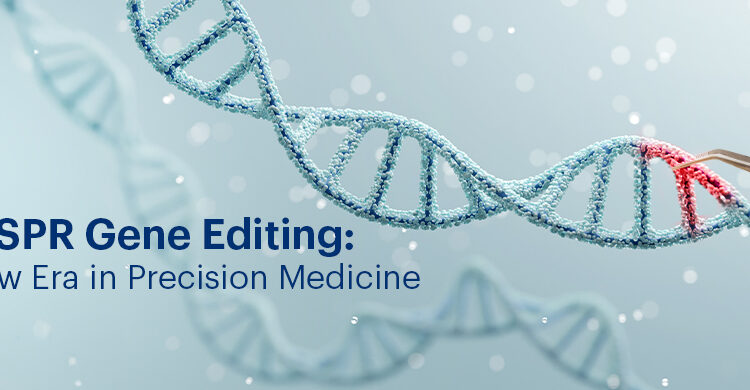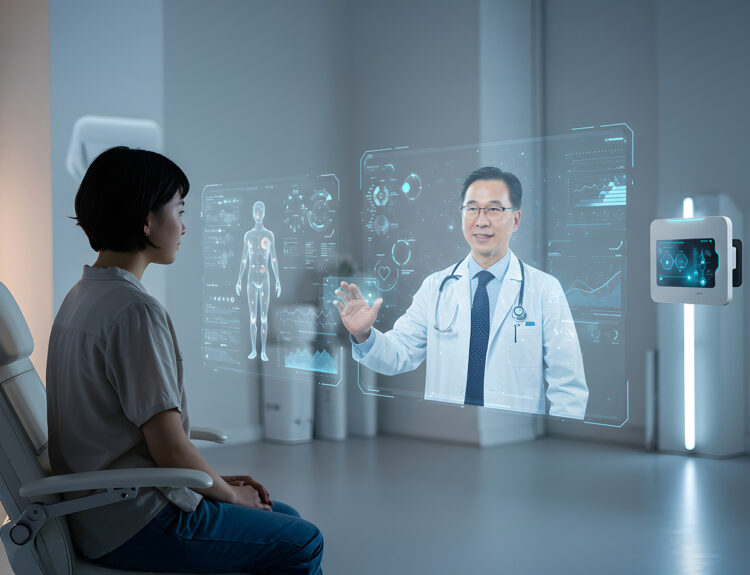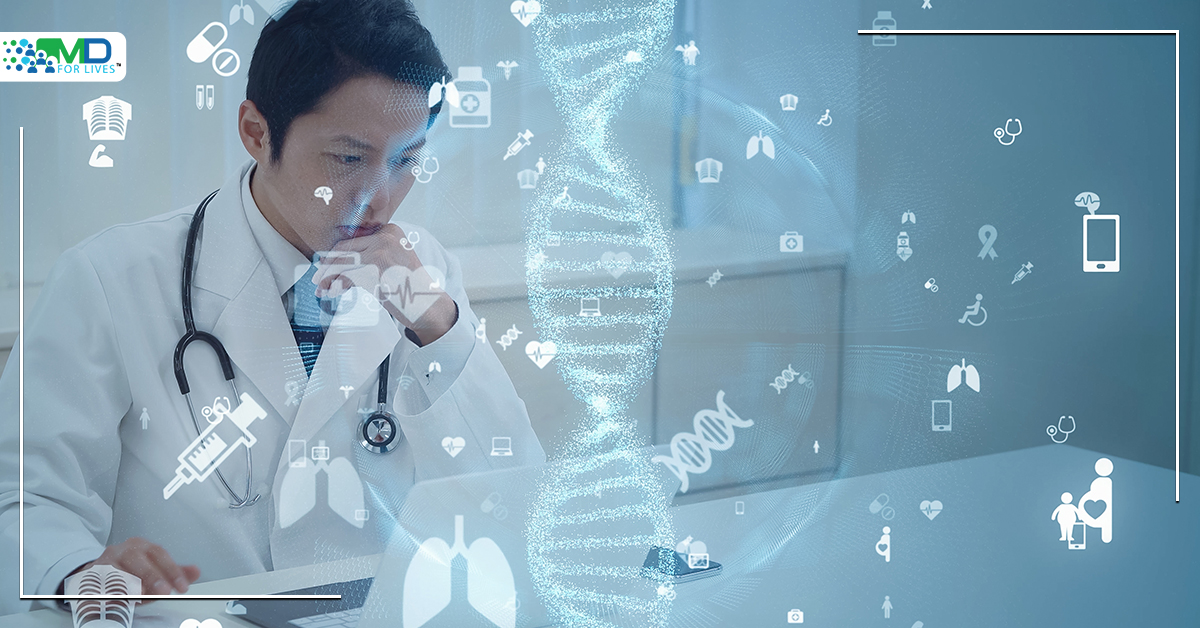A few decades ago, remote consultations, lab-grown organs, and gene-editing therapies were the stuff of science fiction. Fast forward to today, and these once-distant ideas have become part of a rapidly evolving medical reality. The pace of innovation in healthcare has accelerated beyond imagination, driven by data, digital connectivity, and the advancement of medical technology across every branch of medicine. Thanks to incredible technological advances in health care, doctors can now use AI algorithms to predict diseases before symptoms even appear, nanotechnology to deliver drugs precisely where they’re needed, and robotic systems to perform surgeries with near-perfect precision. Meanwhile, patients are becoming active participants in their own well-being – tracking vital signs, heart rhythms, and even stress levels in real time through wearable health devices and mobile sensors.
This sweeping advancement of medical technology has made healthcare more personalized, data-driven, and accessible than ever before. It’s not just about curing diseases anymore. Rather, it’s about preventing them, predicting risks, and optimizing health outcomes through smart, connected systems. Yet, with every breakthrough comes a new set of challenges – questions about ethics, data privacy, accessibility, and the limits of innovation. In this article, we’ll explore the recent technological advances in medical science that are revolutionizing care and discuss the open research problems that still need to solve in our journey toward the future of healthcare.
Recent Technological Advances in Health Care
Today’s technological advances in medical care go far beyond traditional devices and surgical tools. They encompass fields like artificial intelligence, nanotechnology, robotics, genetic engineering, and digital health ecosystems. Below are some of the most impactful medical technology innovations reshaping healthcare delivery and outcomes.
#1 Developments in Nanotechnology
Nanotechnology, the manipulation of matter on an atomic or molecular scale, is one of the most exciting advancements in medical technology. In healthcare, nanoparticles are being used for targeted drug delivery, diagnostic imaging, and even cancer treatment.
For example, nanocarriers can transport chemotherapy drugs directly to cancer cells, minimizing damage to healthy tissues. Similarly, nano-based biosensors enable early detection of diseases at the molecular level. As future medicine technology evolves, nanomedicine will continue to play a central role in precision treatment.
#2 Chimeric Antigen Receptor (CAR) T-Cell Therapy
CAR T-cell therapy represents a revolutionary medical technology innovation in oncology. This form of immunotherapy modifies a patient’s T-cells to recognize and destroy cancer cells. It has shown remarkable success in treating certain leukemias and lymphomas, offering hope to patients resistant to conventional treatments.
While CAR T-cell therapy is still being refined, its success demonstrates how advancements in medical technology are transforming even the most complex diseases.
#3 Development of Implantable Artificial Organs
The development of implantable artificial organs marks a breakthrough in new technology in healthcare. Scientists have successfully created artificial hearts, kidneys, and even pancreatic cells that mimic natural functions.
Powered by bioengineering and materials science, these organs help bridge the gap between organ failure and transplantation. As medical advances in technology continue, future generations may rely on lab-grown or fully synthetic organs instead of donor transplants.
#4 Regenerative Therapy Treatment
Regenerative medicine is another frontier in the advancement of medical technology. Using stem cells and tissue engineering, regenerative therapy aims to repair or replace damaged cells, tissues, and organs.
Recent breakthroughs include 3D bioprinting of tissues, stem-cell-derived heart patches, and wound-healing scaffolds. These innovations in medical technology are paving the way for restorative treatments that could one day eliminate the need for prosthetics or long-term medications.
#5 Development of mRNA Vaccines
The rapid development of mRNA vaccines during the COVID-19 pandemic demonstrated the power of advances in medical technology. Unlike traditional vaccines, mRNA vaccines teach cells to produce a harmless protein that triggers an immune response.
Beyond COVID-19, researchers are exploring mRNA platforms for cancer immunotherapy, malaria, and autoimmune diseases. This medical technology innovation has permanently changed how we approach infectious disease prevention.
#6 Virtual Reality (VR)
Virtual Reality (VR) is making its mark in healthcare technology advances, particularly in medical training and rehabilitation. Surgeons can now simulate complex procedures in a risk-free virtual environment, improving precision and confidence.
For patients, VR is being used to manage chronic pain, anxiety, and PTSD through immersive therapy sessions. This new technology in health care enhances both the learning curve for professionals and the recovery experience for patients.
#7 Telemedicine
The pandemic accelerated the adoption of telemedicine, a vital technological advancement in medical care that allows patients to consult doctors remotely. Through video calls, remote monitoring, and digital prescriptions, telehealth ensures continuity of care even in rural or underserved areas.
Telemedicine represents one of the most significant healthcare technology advances, expanding access while reducing costs and waiting times for millions worldwide.
#8 CRISPR-Cas9 Gene Editing
Among the most groundbreaking medical technology innovations, CRISPR-Cas9 allows scientists to precisely edit genes by cutting DNA at specific locations. This opens possibilities for correcting genetic disorders like sickle cell anemia, muscular dystrophy, and even certain cancers.
While ethical and safety considerations remain, CRISPR represents a paradigm shift in the advancement of technology in the medical field, promising cures that were once unimaginable.
#9 Health Trackers, Wearables, and Sensors
From smartwatches to continuous glucose monitors, wearable technology in modern healthcare has become a vital part of modern medical technology innovations. These devices collect real-time health data, allowing individuals and clinicians to monitor heart rate, oxygen levels, sleep, and fitness.
Such advancement of medical technology promotes preventive care and empowers patients to take charge of their well-being – bridging the gap between daily life and clinical insight.
#10 IoT Framework
The Internet of Things (IoT) has created a connected healthcare ecosystem. Smart devices, sensors, and cloud-based systems work together to collect and share data across hospitals, homes, and labs.
This technological advance in medical care improves patient monitoring, predictive analytics, and hospital efficiency. However, it also raises important questions about data privacy and cybersecurity, which remain key challenges in future medical technology.
#11 Artificial Intelligence (AI)
No discussion on technological advances in health care is complete without Artificial Intelligence (AI). AI algorithms are being used for diagnosis, drug discovery, imaging analysis, and predictive healthcare.
For instance, AI-driven tools can detect early signs of diseases like diabetic retinopathy or breast cancer faster than human experts. This advancement in medical technology not only enhances diagnostic accuracy but also reduces human error, improving patient safety.
Read about AI in Healthcare
#12 Blockchain
Blockchain technology offers a secure and transparent way to manage patient records, clinical trials, and supply chains. Its decentralized nature prevents data tampering, making it one of the most promising advancements in medical technology for data integrity.
Hospitals and pharmaceutical companies are already exploring blockchain to improve traceability and trust within healthcare systems, demonstrating how new technology in healthcare can reinforce both efficiency and security.
Read about – Future of Pharmacy
#13 Robotics
Robotic systems have revolutionized surgery, rehabilitation, and hospital automation. From robot-assisted surgeries that offer precision and minimal invasiveness to rehabilitation robots that help patients regain mobility, robotics is a cornerstone of medical technology in the future.
This advancement of medical technology reduces recovery times, improves accuracy, and helps doctors perform procedures once thought impossible.
Open Research Problems on Emerging Technologies in Healthcare Delivery
Despite these incredible healthcare technology advances, significant research challenges remain.
- Data Privacy and Security: As digital platforms grow, safeguarding patient data across IoT and AI systems remains critical.
- Ethical and Legal Frameworks: Gene editing, AI, and robotics raise moral questions about consent, bias, and accountability.
- Accessibility and Affordability: Ensuring that advancements in medical technology reach low-income, and rural populations is a continuing challenge.
- Interoperability: Integrating diverse technologies—from EHRs to wearables—into a cohesive, user-friendly system is still an ongoing effort.
- Sustainability: As medical technology evolves, reducing its environmental footprint and ensuring resource-efficient production are becoming research priorities.
Addressing these open issues will determine how future medical technology continues to serve both humanity and healthcare ecosystems responsibly.
Conclusion
The pace of technological advances in health care is accelerating, reshaping the way we prevent, diagnose, and treat diseases. From AI and nanotechnology to gene editing and telemedicine, these innovations in medical technology represent the dawn of a more personalized, efficient, and interconnected healthcare system.
While challenges like ethics, cost, and access persist, the continued advancement of medical technology holds the promise of a healthier, more equitable future. As we move toward future medicine technology, collaboration between clinicians, researchers, and tech innovators will be key to turning possibility into progress.
FAQs
Q1. What are the most significant technological advances in health care today?
Some of the most impactful technological advances in health care include AI-powered diagnostics, telemedicine, nanotechnology, gene editing (like CRISPR), mRNA vaccines, wearable health trackers, robotic surgery, and implantable artificial organs. These innovations are transforming how diseases are diagnosed, treated, and managed.
Q2. How is AI changing modern medicine?
Artificial Intelligence (AI) enhances diagnostics, predictive analytics, and treatment planning. AI algorithms can detect early signs of diseases such as cancer or heart conditions faster than traditional methods, making healthcare more precise, data-driven, and personalized.
Q3. What role do wearable devices and health trackers play in healthcare?
Wearables and health sensors allow patients to monitor vital signs, heart rate, sleep patterns, and physical activity in real time. These devices support preventive care, early intervention, and a more personalized approach to health management.
Q4. What are the benefits of telemedicine?
Telemedicine provides remote consultations, monitoring, and care delivery, improving access for patients in rural or underserved areas. It enhances convenience, reduces healthcare costs, and ensures continuity of care even during emergencies.
Q5. How are mRNA vaccines an example of medical technology innovation?
mRNA vaccines represent a breakthrough in medical technology innovations. They instruct cells to produce proteins that trigger immune responses, allowing faster development against infectious diseases and paving the way for personalized cancer therapies.

The creative force behind the keyboard, Pallabi crafts narratives of healthcare wonders and research marvels. As a seasoned professional blogger, she ventures to unearth the riches of medical innovation, weaving them into insightful stories that educate.






